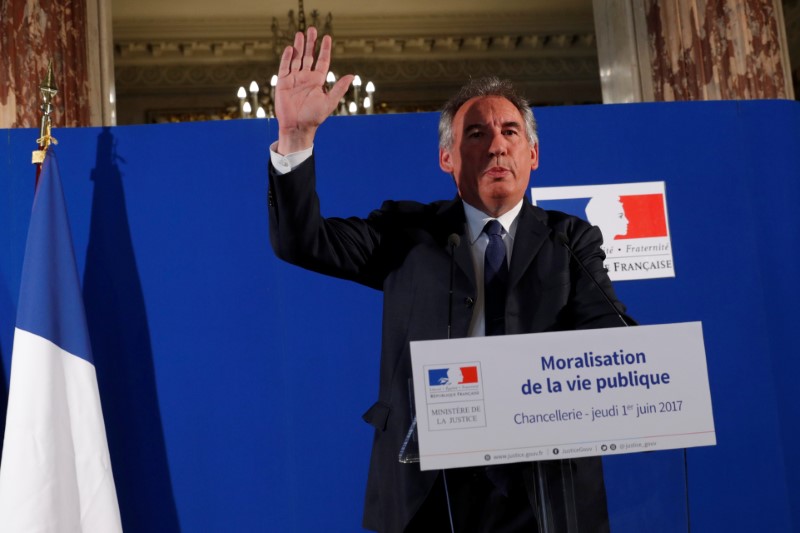PARIS (Reuters) - The French prime minister on Tuesday publicly criticised Justice Minister Francois Bayrou for telling a public broadcaster it was harassing members of his centre-right Modem party, saying it did not constitute good practice.
Modem, founded by Bayrou, is in an alliance with the President Emmanuel Macron's party Republic on the Move (LREM), and Bayrou is one of two Modem ministers in the cabinet. But his party's influence may be on the wane after the LREM's comfortable win of the first round of parliamentary election, reducing Macron's need for Modem's support.
The party's standing risks further being undermined by Bayrou's handling of Radio France after a Paris prosecutor on Friday launched a judicial investigation into Modem's use of European parliamentary funds.
The investigations director of Radio France was cited as saying that he felt "pressure" during a phone conversation with the justice minister, who has said he called to complain about what he described as harrassment of women Modem lawmakers by the broadcaster's journalists.
But Prime Minister Edouard Philippe on Tuesday criticised Bayrou's statement that he had called "as a citizen."
"When you are a minister, you are not simply a person driven by their passions, or their irritations, or their indignation," Philippe told broadcaster Franceinfo.
Asked if it was good practice for ministers to call journalists to complain, Philippe replied bluntly: "No."
Bayrou told reporters in response that he would continue to express himself freely.
"Every time there is something to say to the French, to those in charge, be they politicians or journalists, every time there is something to say I will do so," he said. "You say it simply and without any putting any pressure on, but you say it."
Only a month ago there was little certainty Macron's one-year-old party would secure a parliamentary majority. Days after he entered the Elysee palace, there were tense talks with Bayrou who accused him of breaking a deal over the share of seats Modem would be given to contest under the alliance.
Macron backed down and handed Bayrou more seats.
Sunday's vote and the projections for the June 18 second round delivered a further crushing blow to the Socialist and conservative parties that had alternated in power for decades until Macron's election in May blew apart the left-right divide.
Macron, a former investment banker, wants a big majority to help drive through the raft of economic and social reforms that he promises, including an easing of stringent labour laws and overhaul of an unwieldy pension system.

Macron and his party profess to be neither right nor left. His rivals from the traditional parties that have long dominated French politics have urged voters not to allow power to be concentrated in the hands of one party.